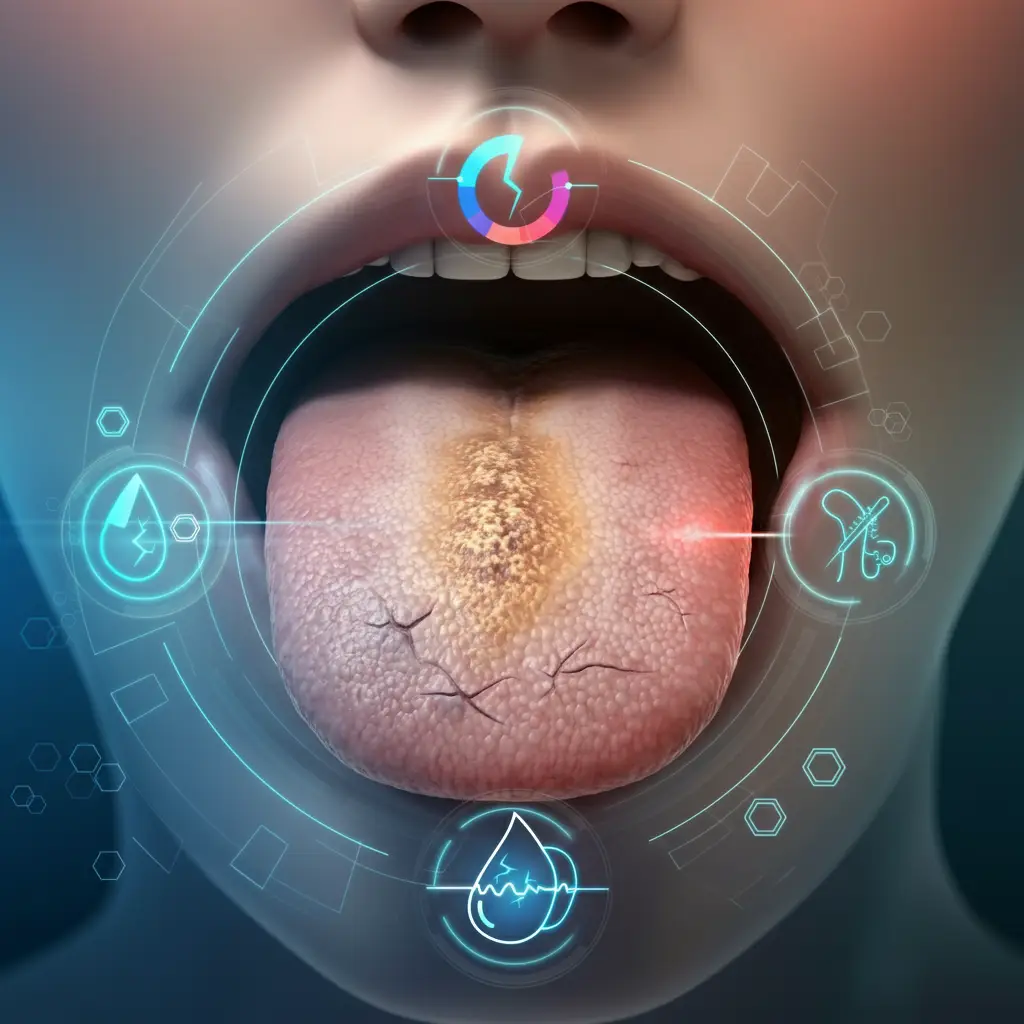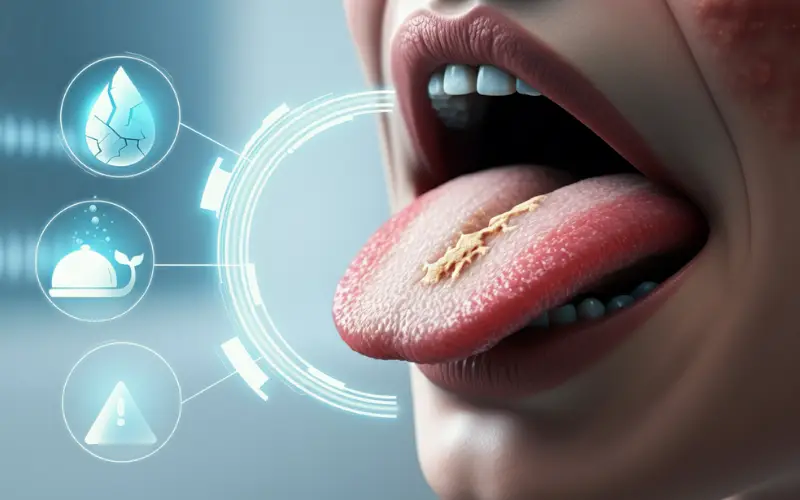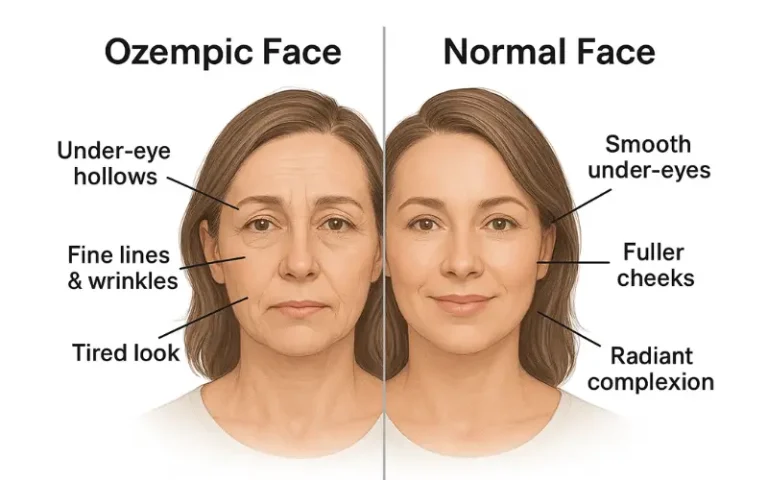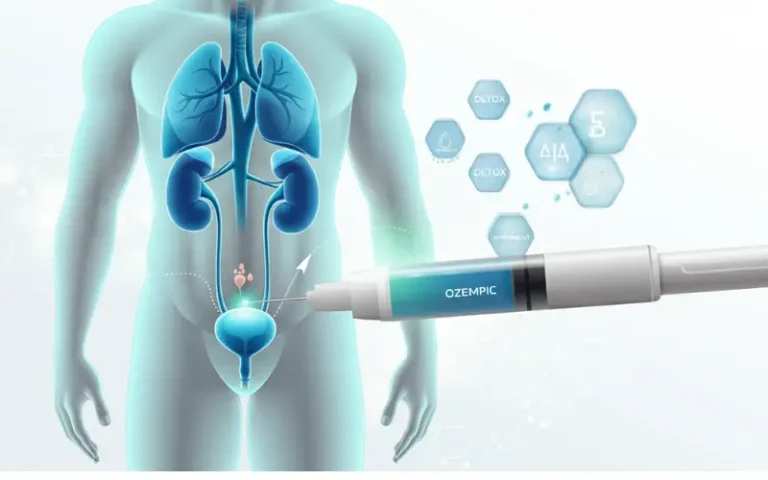Ozempic Tongue
What Is Ozempic Tongue? Symptoms, Causes, and Management

Ozempic (Semaglutide) has become widely known for its effectiveness in managing type 2 diabetes and aiding weight loss. However, users are reporting a range of side effects, including a peculiar phenomenon now popularly called “Ozempic tongue.” This condition involves noticeable changes in your sense of taste, from a metallic tang to finding favorite foods suddenly unappealing. This article explores what Ozempic tongue is, why it happens, and what you can do about it.
What is Ozempic Tongue?
” Ozempic tongue” is not an official medical term. Instead, it’s a user coined phrase describing a change in taste perception, known medically as dysgeusia, experienced by some individuals taking GLP-1 receptor agonists like Ozempic. People report a variety of taste distortions, including a persistent metallic, bitter, or sour taste. For some, it enhances sweet flavors, while for others, it makes once loved foods taste completely different or unpleasant.
Common Symptoms of Ozempic Tongue
The experience of Ozempic tongue can vary from person to person. Have you noticed any of these changes?
- Metallic Taste: A common complaint is a lingering metallic taste in the mouth, regardless of what has been eaten.
- Altered Food Flavors: Foods may taste bland, overly salty, excessively sweet, or just “off.” For example, your morning coffee might suddenly taste bitter, or a favorite snack might seem unpalatable.
- Bitter or Sour Sensation: A persistent sour or bitter taste that isn’t related to food or drink.
- Distorted Sweetness: Some users report an increased sensitivity to sweet tastes, making sugary foods overwhelmingly sweet.
- Reduced Taste Sensitivity: In some cases, the ability to perceive flavors is diminished, making everything taste dull.
These symptoms can appear as early as two weeks after starting the medication. They can be a confusing and sometimes frustrating side effect.
Causes and Mechanisms Behind Ozempic Tongue
While researchers are still exploring the exact reasons for Ozempic induced taste changes, several theories exist. The primary mechanism is believed to involve how Semaglutide interacts with GLP-1 receptors, which are not only in the gut and brain but also present on taste bud cells.
1.GLP-1 Receptor Activation: Taste bud cells on the tongue produce GLP-1. Semaglutide, which mimics this hormone, may directly interact with these receptors, altering the signals sent to your brain about taste.
2. Gene Expression Changes: Some research suggests that GLP-1 drugs might alter the way genes related to taste perception are expressed in tongue tissue.
3. Brain Reward Pathways: Ozempic is known to affect the brain’s reward center, reducing cravings. This neural change could also remap how the brain processes taste information, particularly for high-sugar and high-fat foods.
4. Indirect Effects: Other side effects of Ozempic, such as dry mouth or acid reflux from delayed stomach emptying, can also contribute to a bad taste in the mouth.
How Common is Ozempic Tongue?
Taste alteration is a recognized side effect of Ozempic. During clinical trials, dysgeusia was reported by a small percentage of participants, with some data suggesting that over 0.4% of users experience it. However, online forums and patient communities indicate that the number may be higher in real-world scenarios. Studies have found that up to 6% of patients on Semaglutide therapy might experience some form of taste change.
The Impact on Appetite and Weight Loss
Interestingly, this side effect may play a role in the drug’s effectiveness for weight loss. When previously enjoyable foods, especially those high in sugar and fat, become less appealing, it can naturally lead to reduced consumption.
- Reduced Cravings: If a bag of chips now tastes too salty or a dessert seems sickeningly sweet, you are less likely to want it.
- Aversion to Certain Foods: Some users develop a strong aversion to specific foods, which can help break unhealthy eating habits.
For many, this change is a welcome, albeit strange, contributor to their weight management goals. However, for others, it can be distressing and lead to a decreased enjoyment of food altogether.
Other Oral Side Effects of Ozempic
Ozempic tongue isn’t the only oral issue users might face. Other related side effects of semaglutide include:
- Dry Mouth (Xerostomia): A common side effect that can worsen taste problems and increase the risk of cavities. Reduced saliva means taste buds don’t function optimally.
- Halitosis (Bad Breath): Also known as “Ozempic breath,” this can result from dry mouth or from the “sulfur burps” associated with delayed gastric emptying.
- Acid Reflux: Semaglutide slows down how quickly your stomach empties. This can cause stomach acid to flow back into the esophagus, leaving a sour or acidic taste.
7 Tips to Manage Ozempic Tongue
If you’re dealing with these taste changes, you don’t necessarily have to stop the medication. Several strategies on how to manage Ozempic tongue can help you cope:
1. Stay Hydrated: Drink plenty of water throughout the day. This helps combat dry mouth and keeps your taste buds functioning properly.
2. Practice Good Oral Hygiene: Brush your teeth twice a day, floss daily, and consider using a tongue scraper to remove bacteria that can contribute to bad tastes.
3. Use Mouth Rinses: An alcohol-free mouthwash can help. Some people find rinsing with a solution of baking soda and water or diluted apple cider vinegar helps neutralize unpleasant tastes.
4. Chew Sugar-Free Gum or Mints: Sucking on sugar-free mints or chewing gum stimulates saliva production, which can wash away bad tastes and ease dry mouth.
5. Experiment with Flavors: If foods taste bland, try using herbs, spices, or marinades to enhance their flavor. If sweet things are too much, focus on savory or umami-rich foods.
6. Avoid Trigger Foods: Pay attention to which foods or drinks cause the worst taste changes and try to avoid them.
7. Eat Smaller, More Frequent Meals: This can help manage gastrointestinal side effects like acid reflux that contribute to bad tastes.
When to Consult a Doctor
While Ozempic tongue is generally not a dangerous side effect, you should speak with your healthcare provider if:
- The taste changes are so severe that they prevent you from eating a balanced diet.
- You are experiencing significant unintentional weight loss due to food aversion.
- The side effect is causing you significant distress.
- You develop other concerning symptoms like oral ulcers or severe dry mouth.
Your doctor can help determine if the benefits of the medication still outweigh the side effects and may offer additional management strategies.
Conclusion
Ozempic tongue is a real and sometimes disorienting side effect for those using Semaglutide. These Ozempic taste changes, from a metallic flavor to an altered perception of sweetness, are linked to how the drug interacts with taste receptors and brain pathways.
While often contributing to weight loss by making certain foods less appealing, it can be a challenging side effect to live with. Fortunately, simple strategies like staying hydrated, practicing excellent oral hygiene, and experimenting with different food flavors can help manage the symptoms. If you’re experiencing Ozempic tongue, remember to discuss it with your doctor to ensure you continue to meet your health goals in the most comfortable way possible.
FAQs about Ozempic Tongue
Does Ozempic tongue go away?
For many people, this side effect is temporary. It improves as their body adjusts to the medication over several weeks or months. For others, it may persist as long as they are taking the drug.
Are other weight loss drugs associated with taste changes?
Yes, dysgeusia is a known side effect of other GLP-1 drugs like Wegovy and Mounjaro, as well as other types of medications unrelated to weight loss.
Could the taste changes lead to nutritional deficiencies?
If you start avoiding entire food groups because of taste aversions, there is a risk of nutritional deficiencies. It’s important to monitor your diet and talk to your doctor or a registered dietitian if you have concerns.







